#microexpressions
Text
Percy’s face when Sally mentioned Grover playing a role in getting him kicked out of school…

The way his face scrunches up really tight before relaxing? That’s anger.
But not the kind of anger we see in him in the last episode.
This is the kind of anger that makes you cry. The kind that’s underpinned by embarrassment and hurt and feeling like you’ve been treated unfairly.
Percy knows he didn’t push Nancy into the fountain and he thought that, if anyone would have his back, it was going to be Grover. And then he didn’t. And it’s unfair to Percy. It’s Wrong. Because no one believes him, apparently not even his best friend.
And the way he closes his eyes and takes a really deep breath? That’s a tactic that’s literally recommended to stop yourself from crying when you’re angry. It allows your body to “catch up” with your mind.
What do you wanna bet that Percy learned that from a school counselor?
#microexpressions#walker scobell#pjo tv show#pjo fandom#percy jackson#percy jackon and the olympians#pjo disney+#percy series#pjo#walker scobell is percy jackson#adhd percy jackson#neurodivergent percy jackson#accurate representation#percy jackson gif#pjo series#pjo gifs#percy pjo#rick riordan#riordanverse#percy jackson thoughts#grover underwood#grover pjo#percy and grover#pjo episode 1#percy jackson disney+#pjo sally jackson#sally jackson
9K notes
·
View notes
Text
Deduction Tips #16
The size of a bag is indicative of how much a person needs to carry, and usually we prefer to carry less things. When you see someone with a bag (be it a backpack, a purse, or anything else) think about why this person needs a bigger one rather than a smaller one, and what that says about the contents of the bag and the situation of the person carrying it
#deduce#learning deduction#deductionist#deductive reasoning#deduction#sherlock#logic reasoning#observant#observation#profiling#psychology#logic#sherlock holmes#bbc sherlock#sherlock bbc#Sherlockian Deduction#How to think like Sherlock Holmes#study#studyblr#learning#tips#memory#mind palace#microexpressions#criminal minds#the mentalist#house md#elementary#body language
43 notes
·
View notes
Note
When it comes to the observation weeks in the training program. Could you elaborate on why we shouldn’t deduce then? Is it only about the time when we are doing the exercises?
Hello! great question, i gotta say i didn't write that program, but i did follow it, so i can only give you an answer based on my experience with it and with deduction as a whole. Unfortunately L isn't available to give you the original reason, but if i get in contact with them i'll make a post with their answer.
So, there's this quote from Sherlock which sums up the reasoning behind this very clearly:
"It is a capital mistake to theorize before one has data. Insensibly one begins to twist facts to suit theories, instead of theories to suit facts."
During this stage of the program it is assumed you're coming into deduction as a complete beginner, and therefore that you haven't honed your observation skills yet. This means you'll inevitably be at a point where if you try to deduce you'll be doing so while missing a large amount of information, and fall into the trap of not knowing you're missing information and trying to work with what you have, which leads to often taking big leaps in reasoning to reach conclusions, because you don't have enough data to work with.
This is also why when i teach people i make sure they're at an acceptable level in their observation skills before i move onto other stuff. Later on in the process you learn how to make the most out of a situation where you have little to no information to deduce from. But that's a bit too complicated for a beginner, so it's important that they don't try to deduce until they have a solid grasp on what information they can gather
Aditionally, the training program, as incomplete as it may be, attempts to separate the process of learning deduction into manageable chunks. That program was written during a time where the community was much bigger and everyone attempting to find some way of learning this skill. Everyone was coming up with solutions to their problems and sharing them in the community, and that program is an attempt to solve the overwhelming feeling that comes with trying to learn a massive skill with multiple possible points of entry. It segments it into manageable, organized chunks for people to have a neat way of getting started with deduction, and one of those chunks is just observation, since it's complex enough of a base skill to have its own section
#deduce#learning deduction#deductionist#deductive reasoning#deduction#sherlock#logic reasoning#observant#observation#profiling#psychology#logic#sherlock holmes#bbc sherlock#sherlock bbc#Sherlockian Deduction#How to think like Sherlock Holmes#study#studyblr#learning#tips#memory#mind palace#microexpressions#criminal minds#the mentalist#house md#elementary#body language#answers
13 notes
·
View notes
Text

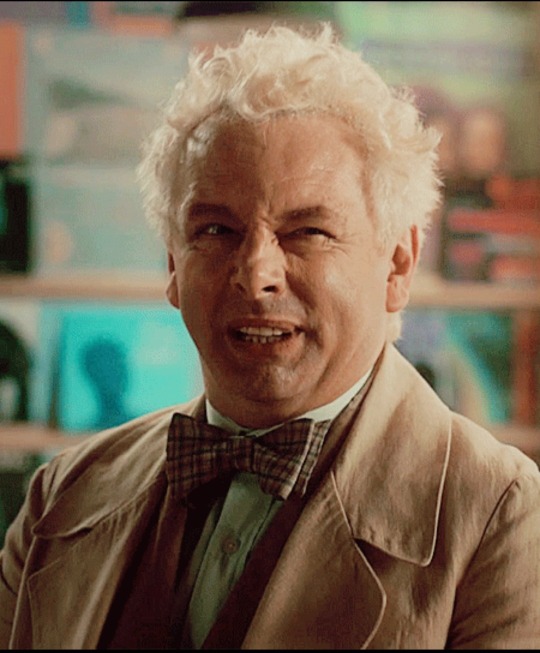
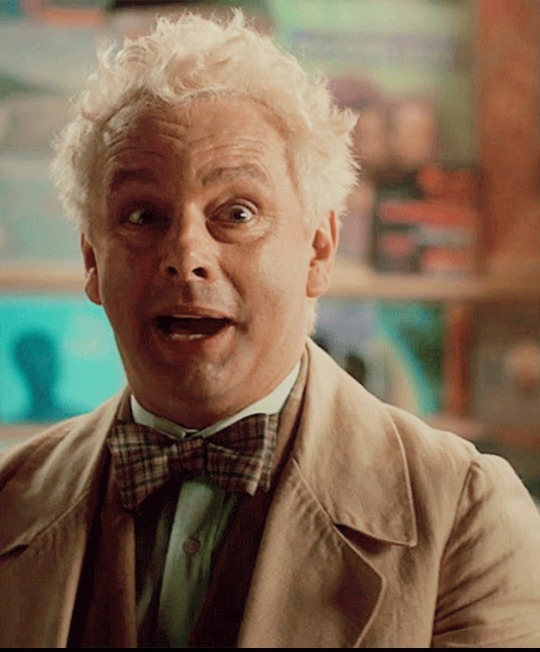
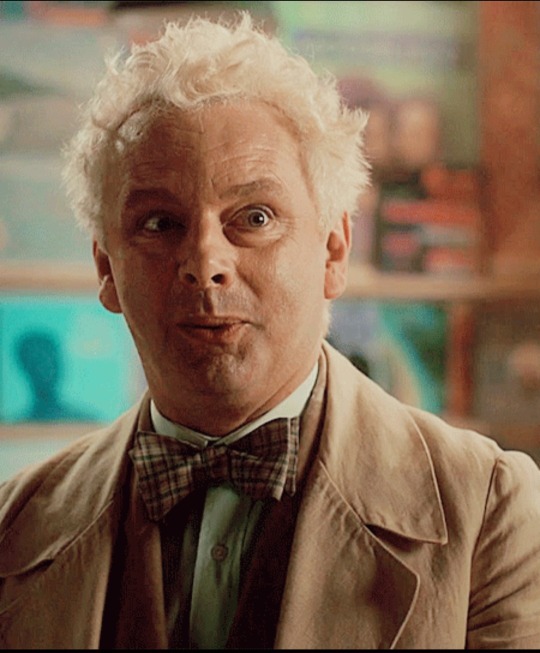
I screenshotted so you could meme. Enjoy my pretties!
#good omens#azriaphale#good omemes#ineffeble husbands#michael acting choices sheen#michael sheen#microexpressions
17 notes
·
View notes
Text
Tom Sturridge’s performance as the Sandman is a masterclass of the power of micro expressions in acting
204 notes
·
View notes
Text
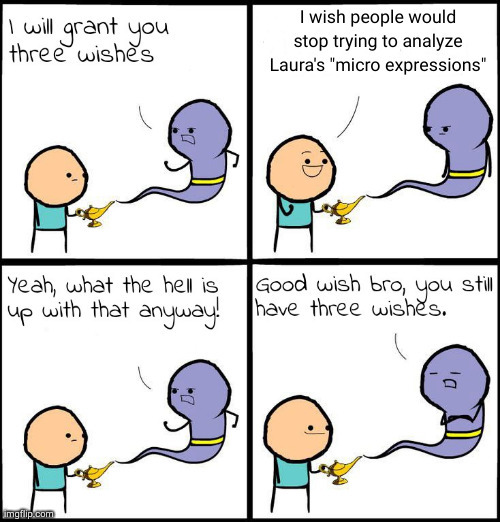
This isn't about anything particular, don't worry about it :)
#critical role#cr cast#laura bailey#critrole#critrole memes#microexpressions#facial expressions#cr memes#cr shitpost#courtesy of me#vagueposting
72 notes
·
View notes
Text
I would argue without Cons acting I wouldn’t like Izzy nearly as much. The way Izzy looks at Ed, the little wave he does to Ed and all his micro expressions give you so much of an insight into his character that THATS what makes him more understandable.
I would still think he was a character who side of the story we hadn’t gotten yet but Cons acting pushes it that much further.
91 notes
·
View notes
Text

More from the not-for-art-folder.
49 notes
·
View notes
Text
Good Omens drinking game where it's just scrolling through good omens Tumblr and downing your drink every time you read the word 'microexpressions'.
6 notes
·
View notes
Text
Why I love the Spymaster #77: "Once upon a time...No."
Find my full series under the HELP I WUVS HIM tag.
#77: "Once upon a time...No."
In The Timeless Children, the Spymaster incapacitates Thirteen and forces her to hear his recitation of the origin of Time Doofuses. His story starts off like this.



In my mini essay about the Spymaster's search for the right word [#57], @sclfmastery uses this moment to illustrate his "fastidious precision" that is often symptomatic of “extreme agitation/overstimulation.” I agree with her general interpretation. I also think there's more going on in this particular example.
In this clip, we have an example of the Spymaster's conversational consciousness. I note in #11: You can see his mind at work! that the Spymaster thinks dialogically; he takes on both sides of a conversation with himself. We see that here with his self-correction. We also see that he acts everything out [#46], as if he thinks by performing actions, or, in this case, speaking his words aloud, rather than just thinking them, to see if they're right. I love the way that Sacha Dhawan makes the character's interior life exteriorized and easy to see.
This bit also illustrates his negative, critical view of himself [#54: He's still excruciatingly self-conscious!]. In this scene, the Spymaster wants to tell Thirteen exactly what he has learned; he assumes that, if he can just find the right words, she will understand what he's going through [#73: He wants mutual understanding with the Doctor!]. The "no," closed eyes, and shaking head indicate that he dislikes misspeaking. He even seems disgusted at himself for his imprecision. He feels like his vocabulary is failing him, which makes him feel like he's failing himself.
Finally, this clip emphasizes how tired the Spymaster is. His self-correction and closed eyes show that he's sick of his own mistakes. His repetition and elaboration from "Once upon a time" to "Once upon several times" reminds us that he has seen the Timeless Child drama/the Doctor's regeneration many, many times, and he has been exhausted by seeing it. The restrained body language, long blinks, and eyebags signal that his emotional depletion also has a physical component. Remember that he is struggling physically with his incorporation of the Matrix and the Cyberium. Putting words to complicated concepts challenges the Spymaster, especially when he feels as if he's disintegrating.
#HELP I WUVS HIM#themastergifs#the timeless children#spymaster#the spymaster#once upon a time#he's tired of himself#doctor who#dw meta#body language#microexpressions
17 notes
·
View notes
Text
WE NEED TO TALK ABOUT THIS SCENE MORE (DAISY TALKING TO THE JOURNALIST).
HOW HER FACIAL EXPRESSION TRANSFORMED FROM PLAYFUL TO SINCERELY CURIOUS TO SHOCKED TO HURT TO ENRAGED. AND THE BEST PART?
IT'S SO SUBTLY DONE, YOU CAN ONLY TELL BY HER EYES.
SHE'S SO FUCKING GOOD.

#microexpressions#riley keough#daisy jones#daisy jones and the six#daisybilly#i am obsessed with this show
16 notes
·
View notes
Note
Hi!!! How can deductions be used in day to day life, or like, usefully? And how have you made useful deductions? Sorry if that made little sense
Hi! I see you sent this question in the past two days, i'll gladly answer it, but in case you send any other questions in the future and i don't answer them as quickly i'll inform you that usually all the questions of the week are collected in my inbox and you'd get your answer on a Monday (this week i had some scheduling problems so i pushed it to Wednesday), so if you don't get as quick an answer next time just wait for Monday!
Now, regarding your question! There's many ways deduction can be used in daily life, sometimes it even depends on what you do for a living. For example i know psychologists and other healthcare profesionals have to rely on non verbal communication and information they gather from observation, along with what they're told, since patients can't be relied upon to be transparent and honest all the time, or even know what information is releant to share. In this case deduction can be massively useful.
On a more general note, it depends a lot on the type of relationships you have, i know people who use deduction to interact with their friends, it allows them to know when they're feeling upset or worried, and about what, and act accordingly, all without needing to do more than just glance at them. I know people who use deduction to navigate social situations because they're not good at interacting with people and having the extra information deduction provides helps. Personally i'm someone that introduces deduction into everything i do, from acquiring helpful knowledge when talking to superiors, to knowing what waiter is best to call over at my table cause they've gotten more hours of sleep.
I recommend you watch Sherlock, House M.D., The Mentalist, and all of these deduction heavy shows that sometimes showcase how these characters use their skills casually, it's really not much different than what you see there. If you want a blog that really goes into casual uses of dedduction i'd check out @froogboi 's blog, it's full of everyday life uses of deduction
#deduce#learning deduction#deductionist#deductive reasoning#deduction#sherlock#logic reasoning#observant#observation#profiling#psychology#logic#sherlock holmes#bbc sherlock#sherlock bbc#Sherlockian Deduction#How to think like Sherlock Holmes#study#studyblr#learning#tips#memory#mind palace#microexpressions#criminal minds#the mentalist#house md#elementary#body language#answers
22 notes
·
View notes
Note
Greetings @amateur-deductions
What are your Go-to advice for for those who start becoming a deductionist and just finished learning body language?
Appreciate Your reply
Bless you all and have a good day.
Hello! Sorry for the delay, i've been on a hiatus since Christmas.
So if you're coming from having learned body language already you have a bit of a head start compared to people that are starting fresh, since you probably have already learned to be more observant, to be constantly aware of things like body movements and facial expressions, and to intepret these things and process them as you take them in. I would say this means you can put a bit less time into the observation practices beginners usually have to go through, and you can dedicate more time to practicing reasoning and logical thinking
I would also say you have the option to approach deduction using your body language background. Something you start to realize as you get better at deduction is that everyone has cultivated different skills they use to extract information, some people use raw logic reasoning, some use extensive psychology knowledge, and some use extensive knowledge in body language and facial expressions, and there's nothing wrong with any of these methods, they're simply what you could understand as different "specialties".
So i would advice that you don't try to learn deduction as a separate discipline than body language, but rather use your body language knowledge, coupled with anything you learn in the field of deduction, to enhance your conclusions
This does come with a disclaimer though. Make sure that you're not leaning into your body language knowledge so much that you're avoiding doing the exercises and learning the methods that are core to deduction simply because body language provides an easier path, since you're well versed in that already
#deduce#learning deduction#deductionist#deductive reasoning#deduction#sherlock#logic reasoning#observant#observation#profiling#psychology#logic#sherlock holmes#bbc sherlock#sherlock bbc#Sherlockian Deduction#How to think like Sherlock Holmes#study#studyblr#learning#tips#memory#mind palace#microexpressions#criminal minds#the mentalist#house md#elementary#body language#answers
12 notes
·
View notes
Text
WHAT DO THESE TWO LOOKS HAVE IN COMMON?
LUST? Yep. DESIRE? Check. LONGING? Yes indeed- so much longing. “FUCK- I WANT HER”? Uh huh. MINE! - oh hell yes!
BOTH MEN ARE HOLDING THEIR BREATH. STARING AT THE OBJECT OF ALL THEIR DESIRES. (Thank you Anthony)
BOTH ARE LOOKING AT THE WOMEN THEY LOVE BUT DON’T AT THINK THEY CAN HAVE.


Tim’s still a bit unsure, but god, he wants to go inside.
You can feel that ache he feels, that conflict that triggers the “honorable, professional” side of him. That doubt..
Is this real life or is this fantasy? Is this Dim & Juicy or Tim and Lucy.
#the rookie x bridgerton parallels#tim bradford x anthony bridgerton#same exact reaction#same lust#same desire#same longing#same feelings of doubt#same feelings of I can’t have her#bound by duty#bound by honor and professionalism#same wanting#same possessiveness#mine#tim bradford#lucy chen#chenford#tim x lucy#i love them#microexpressions
16 notes
·
View notes
Text
jacob anderson acting circles around everyone with his faces. yes king, that’s why i knew who you were in game thrones even tho i never watched your seasons
16 notes
·
View notes
Text
Villanelle's microexpressions
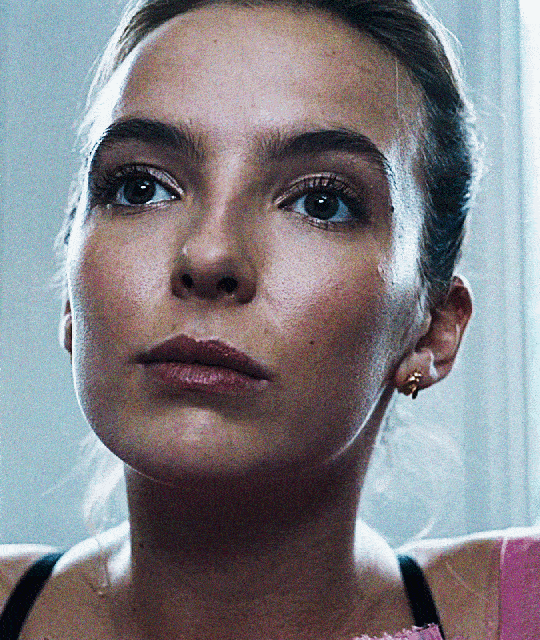



48 notes
·
View notes